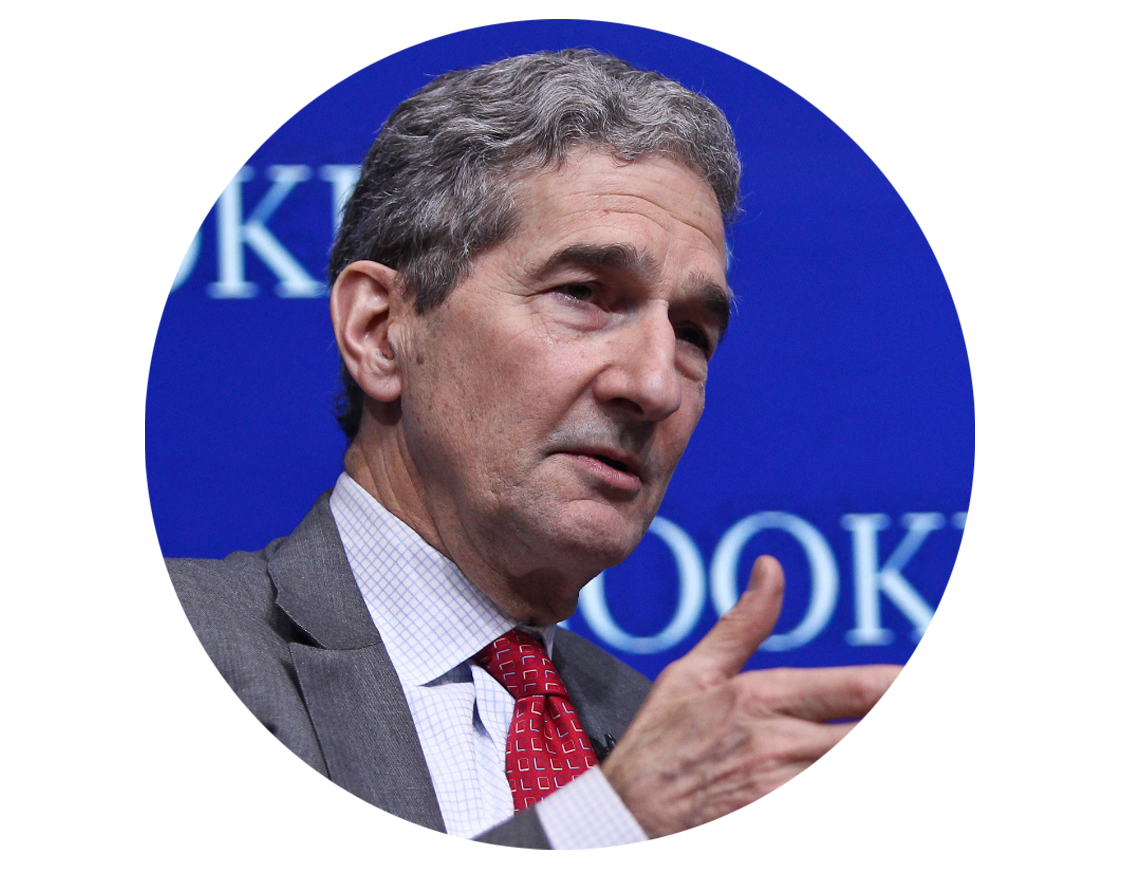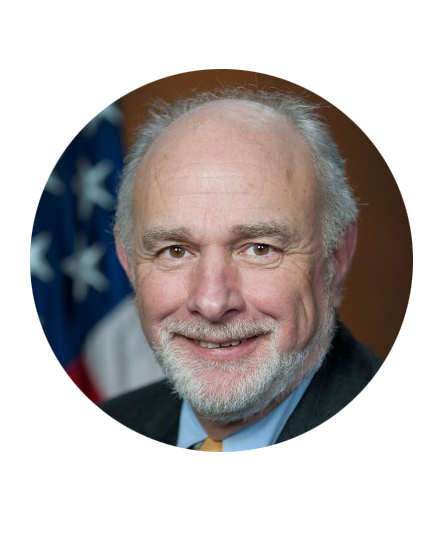By Nicol Turner Lee, Cameron F. Kerry, Bill Baer, Mark MacCarthy, Tom Wheeler, Alex Engler, Rashawn Ray, Aaron Klein, Mishaela Robison
With most results from the midterm elections announced and verified, the dust is finally starting to settle. Some have suggested that voters went to the polls with personal concerns like reproductive rights, inflation, and gun control in mind. The tech industry was also on the minds of many voters in several states: Illinois passed a measure that supports unionizing, which could impact tech warehouses; Montana passed C-48, requiring law enforcement to obtain a warrant before searching electronic devices; and multiple candidates attacked content moderation on social media as part of the campaign trail. Considering these developments, and a new Republican-controlled House of Representatives, scholars across the Center for Technology Innovation (CTI) weighed in around the halls on what the results of the midterm elections mean for tech policy in the new Congress.

NICOL TURNER LEE (@DrTurnerLee)
Senior Fellow and Director, Center for Technology Innovation:
More and more scrutiny should be expected on broadband expenditures and tech policy in general
Last year, the Biden-Harris administration received bipartisan support for the Infrastructure Investment and Jobs Act (IIJA). But even with a Democratic-controlled House of Representatives, Republicans have called for greater oversight of the large appropriation allocated to improve the nation’s transportation, water, and broadband assets. Earlier this year, House Energy and Commerce Republican Leader, Cathy McMorris Rodgers (R-WA) called upon the National Telecommunications and Information Administration (NTIA) in the U.S. Department of Commerce to deploy greater controls in the management and distribution of their share of the $64 billion in funds for high-speed broadband ($43 billion in total). The Leader also called for more effective oversight of the nation’s spectrum assets, suggesting that inter-agency squabbles between commercial entities and federal agencies like the Department of Defense undermine the future positioning of U.S. wireless markets.
Meanwhile, some analysts are suggesting that the Federal Communications Commission (FCC), the sister agency responsible for the remaining IIJA broadband expenditures, will face some but not the brunt of scrutiny from a split majority House and Senate, especially given their 2-2 voting split as well. Of course, this could swiftly change in the new Congress where Senate Democrats can work to seat the next FCC Commissioner–a task that has been on hold since President Biden took office.
We also should expect that some previous fears around China’s domination of the tech marketplace will continue among majority House leaders. FCC Commissioner Brendan Carr has already called for an outright ban of the Chinese-owned company TikTok, based on data privacy and national security concerns. And this return to American protectionism may resound louder among a GOP-controlled House interested in leading global tech competitiveness. House and Senate Democrats may find themselves placing greater scrutiny on the labor and workplace practices of Big Tech companies, whose current layoffs may adversely affect their trending high jobs reports.
For the most part, tech policy has been more bipartisan under the Biden administration, but it was slow in its ability to move on substantive legislation even with a Democratic House and Senate. In the new Congress, with the Republican-controlled House, we may see a combination of legislative gridlock, GOP investigations of infrastructure spending, and social media platforms that move in more extreme directions. If that is the case, all these things suggest more fireworks but little substantive action.

Ann R. and Andrew H. Tisch Distinguished Visiting Fellow, Center for Technology and Innovation
A national data privacy standard should move forward
Now that the Republicans have reclaimed control of the House, the pressure is on Democrats in the “lame duck” session to move legislation while they know they have the votes. With control divided in the next Congress, both parties will have little running room when it comes to legislation.
One piece of unfinished business is comprehensive privacy legislation. H.R. 8152, the American Privacy and Data Protection Act (ADPPA), is teed up for a vote on the House floor. It’s the product of a bipartisan agreement among the chair and ranking member of the House Energy & Commerce Committee and ranking member of the Senate Commerce, Science & Transportation Committee, Reps. Frank Pallone (D-NJ), Cathy McMorris Rodgers (R-WA), and Sen. Roger Wicker (R-MS).
For a while, it looked like their bill might be on a glide path to House passage after it was reported out of committee by a 53-2 vote, closer than we have ever been to national privacy legislation. But now former House Speaker Nancy Pelosi (D-CA) sided with advocates who spearheaded California’s first-in-the-nation privacy law and the agency created to enforce it), declaring “it is imperative that California continues offering and enforcing the nation’s strongest privacy rights.”
So near, yet so far. Any significant change to the ADPPA’s preemption standard would almost certainly undo the bipartisan grand bargain that enabled the bill to get this far. Yet the bill offers stronger privacy protections than California’s law, including limits on data collection, use, and sharing and groundbreaking extension of civil rights into the digital sphere. Seizing the narrow opportunity to move privacy legislation forward during the lame duck can lock in these protections not just for Californians, but also for everyone in America. A future Congress is unlikely to do better–and could do far worse.

Visiting Fellow:
The Future of Competition policy
The Biden team’s assertive approach to competition policy, antitrust enforcement, and tech platform regulation benefitted, as did much of the Biden agenda, from last Tuesday’s election results. To be sure a GOP-run House and a closely divided Senate means more hostile oversight for both the U.S. Department of Justice’s (DOJ) Antitrust Division and the Federal Trade Commission (FTC). But Republicans will lack the ability to block the progressive antitrust agenda being pursued by Chair Khan and AAG Kanter. The challenge for enforcement remains persuading the courts to apply the plain language, legislative history, and judicial precedent of our antitrust laws and uphold challenges to behaviors and mergers that pose risk—as opposed to requiring near certainty—of competitive harm.
The Facebook and Google challenges will continue their long march through the courts, and we should anticipate more enforcement in that space as investigations into Amazon and Apple wrap up and the FTC and DOJ (and state AGs) continue to question the Pac-Man nascent firm acquisition strategies of the dominant tech platforms. Indeed, the FTC just released a policy statement outlining its view that an “unfair method of competition” under Section 5 of the FTC Act authorizes it to challenge conduct “that has the tendency to ripen into violations of the antitrust laws.”
Will Congress pass bipartisan tech platform legislation—either in the lame duck session or in the new Congress? This year saw early progress on bills addressing the gate-keeper power of large tech platforms: policing self-preferencing by Amazon and others and forcing Apple and Google to allow consumers and app developers to find alternatives to their app stores. But a massive lobbying campaign interrupted the momentum, and hopes of a vote before Election Day evaporated as it drew near.
If Senator Klobuchar (D-MN) and Representative Cicilline (D-RI) can rebuild their bipartisan coalition in the next few week,s with the help of an emboldened President Biden, those bills could squeak through before year’s end. Prospects for next year seem more doubtful, as both the likely House Speaker (Kevin McCarthy) and Judiciary Chair (Jim Jordan) have thus far opposed the legislation.
That leaves the ball squarely in the hands of antitrust law enforcement. And their work has just begun.

MARK MACCARTHY (@Mark_MacCarthy)
Nonresident Senior Fellow, Center for Technology Innovation:
How will the new Congress impact social media disorders?
The conventional wisdom is that a partisan divide prevents Congress from addressing information disorder on social media. Democrats want more content moderation to reduce hate speech, lies, and disinformation. Republicans want equal time for conservative viewpoints. The result was gridlock in the last Congress on a range of social media bills.
Perhaps we should expect more of the same in the new Congress, leaving the future of social media in the U.S. to Mark Zuckerberg, who is lost in the metaverse, and the clueless Elon Musk. Meanwhile, across the globe, including the U.K. and EU countries, are putting in place their own regulatory structures for social media.
But the U.S. Supreme Court (SCOTUS) might point a way forward. SCOTUS will almost certainly take up the Texas and Florida state social media laws to resolve a conflict between the Eleventh Circuit, which rejected the Florida law’s content rules as violations of the First Amendment, and the Fifth Circuit, which upheld Texas’s content rules. Both appeals courts found the transparency measures in the state laws to be constitutional. The informed handicapping is that the high court will reject content regulation for social media but clear the way for legislatures to mandate social media disclosure and openness rules.
Of course, Congress won’t tackle these issues until the high court acts–at least, for now. But once the court acts, perhaps as early as next June, Congress might very well overcome its partisan divide on social media regulation and mandate transparency. Considering the likely Supreme Court decision, Democrats would not be able to force social media companies to take down or limit hate speech, lies, and disinformation, and Republicans would not be able to force them to give equal time to conservative ideas. But both parties might agree that a little sunshine on social media activities would provide due process and public accountability. Transparency might also generate the information needed to devise further constitutional social media regulations.

Visiting Fellow, Center for Technology Innovation:
The continued entanglement of Section 230
Republicans have taken over the House of Representatives in 2023, and the controversial Section 230, which immunizes internet companies from liability for what they allow on their platforms, will become the subject of congressional sound and fury. But don’t expect legislation.
Here are three reasons why there will be hearings, table-pounding, and investigations, but no new law:
Elon Musk – “Republicans cheer Musk’s Twitter takeover,” The Hill headlined. Republicans who have complained that social media censors their viewpoints now have a self-proclaimed “free speech absolutist” as an example to hold up against other platforms and the pressure of advertisers. Incoming House Judiciary Committee Chairman Rep. Jim Jordan (R-OH) is skilled at using hearings for headlines and can be expected to remain true to form.
Texas and Florida Laws – “Freedom of speech is under attack in Texas,” Gov. Gregg Abbott (R) proclaimed as he signed HB 20 into law. The legislation bans “censorship of or certain other interference with digital expression.” The law (and a similar measure in Florida) shows that if Congress won’t act, the states will. Its main effect, however, is to set up a showdown in the Supreme Court.
Supreme Court – The Fifth Circuit Court of Appeals upheld the Texas law while the Eleventh Circuit ruled the opposite on the Florida law. In such circuit conflicts, the Supreme Court traditionally steps in. If they do, the case will join already-docketed cases regarding whether Google’s and Twitter’s recommendation algorithms are protected by Section 230 when they deliver terrorist-related material. Congress will let the Justices take the heat and see what happens.
There will, however, be no shortage of congressional hearings on the topic of social media content moderation. Look for heat and light, but not much productivity.

Fellow:
A pause in AI legislation is the likely outcome in the new Congress
The House of Representatives is now controlled by Republicans, making new artificial intelligence (AI) regulatory protections less likely. Although, it wasn’t so likely before. The bloom of AI policy over the past four years has already heavily favored the promotion of AI, over-constraining its harmful use. That pattern seems likely to continue in the 118th Congress.
From the midpoint of the Trump administration until today, the U.S. government has poured research funding, infrastructure, and policymaking capacity into supporting AI development. This includes 15 new interdisciplinary AI centers funded by the National Science Foundation. On January 1, 2021, Congress passed the National AI Initiative Act, which created as much policymaking infrastructure around AI than any other emerging technology, including a coordinating office in the White House, a task force for creating AI infrastructure, and a commercially focused advisory council. This year, the U.S. literally revived the long-dormant idea of industrial policy to spend tens of billions of dollars on semiconductor manufacturing.
All of this is to say, that Congress is heaping encouragement on the rapid development and implementation of AI systems, while doing proportionately little to prevent its many documented societal harms. Advocates for AI protections can only recently point to the AI Bill of Rights, a White House advisory document, and a meaningful but limited set of agency actions, such as stronger enforcement actions from the Federal Trade Commission, but not much from Congress.
Democrats have proposed most of the substantive AI regulatory ideas, such as the Algorithmic Accountability Act and Facial Recognition Act, without much Republican interest. Unless the American Data Privacy and Protection Act is adopted (see Cam Kerry’s most recent blog post on this), which does contain a few algorithmic protections, the trend towards only promoting, and rarely constraining, AI use in its current form seems likely to continue under a Republican controlled House.

Senior Fellow:
Will the new Congress work to impose greater scrutiny on AI biases, especially in criminal justice?
The red tsunami that was supposed to engulf Congress for the next two years was thwarted by a blue wall held up mostly by young adults, progressives, and people of color. President Biden said that he is open to discussing any issue with Republicans besides abortion, climate change, and social security. For tech scholars, most of us hope this means that technology policy is on the negotiating table for Democrats and Republicans to come together.
There are three areas that I want to highlight for Congress and the White House to explore in the next session. First, President Biden should aim to nominate judges with experience making rulings about technology policies. It is vital that judges in the coming years know how to make decisions that reflect the changing technological landscape focused on tech governance, privacy/surveillance, artificial intelligence, and social media. Second, Congress should aim to really think about how it wants to address hate speech on social media and how machine-learning algorithms are driving certain types of divisive content to users.
Finally, Democrats and Republicans should work together to develop better policies for how algorithms are used in law enforcement and the criminal justice system. Within law enforcement, technologies that include facial recognition, geofencing, and predictive policing are being used more and more to make decisions about people’s lives. In the courts, algorithms also are being used to make decisions about parole and sentencing. Policymakers from across the aisles can gauge the inputs that go into algorithms, which might disproportionately criminalize some Americans over others. Without some type of legislative inquiry around the use of AI in the criminal justice system, some scholars worry that algorithmic bias in law enforcement may continue to replicate the racial disparities that already exist.

Miriam K. Carliner Chair, Economic Studies
Senior Fellow, Center on Regulation and Markets:
Congress and crypto’s future
The biggest news in crypto was not the Democrat’s strong performance in the election but the collapse of FTX, the world’s second largest crypto-exchange. FTX’s implosion ensures that the next Congress will focus even more attention on crypto, while it scrambles the politics and substance as to how lawmakers should handle cryptocurrency and digital assets more broadly.
Multiple committees in Congress are likely to investigate what happened to FTX, starting with the Financial Services Committee in the House and the Banking, Housing, and Urban Affairs Committee in the Senate. The Agriculture Committees in both Chambers will also investigate as FTX was registered with the Commodity Futures Trading Commission (CFTC), which is under the Ag Committees’ jurisdiction, a reminder that America’s financial regulation system remains fragmented despite attempts to consolidate regulators after the 2008 financial crises.
Congressional hearings and continued media scrutiny will likely uncover more misfeasance in the crypto space. Potential domino contagion within crypto is quite possible, as shown by another crypto exchange wherein BlockFi halting is redemptions in the wake of FTX. How deep these crypto disruptions go into the future is unclear, but the more severe the downturn, the more Congressional attention will likely follow.
At some level, the election’s outcome does not fundamentally change the dynamic for potential crypto legislation. Enacting legislation in this space was always likely to be bipartisan, as neither political side had enough cohesion or political strength to ram their vision through. Existing bipartisan proposals, notably draft legislation on stablecoins by Reps. Waters (D-CA) and McHenry (R-NC) and for crypto exchanges by Sens. Stabenow (D-MI) and Boozeman (R-MT) will need to be fundamentally rethought in the wake of FTX’s implosion.
Bipartisan opposition to both bills exists. Both sides want to keep cryptocurrencies out of the regulatory perimeter. FTX’s implosion could be used by some to justify keeping crypto out of the regulated system just as it can be argued that its implosion means regulation is more urgently needed. Forthcoming Congressional hearings will provide all sides ample opportunity to make their case and try to build support.
Any legislation for the next two years is going to require the Republican and Democratic congressional leadership working with President Biden to produce a substantive agreement both sides will be proud of. Given that President Biden is likely to run for reelection and because of his ability to unify the country and work across the aisle, GOP leadership may be hesitant to give him too many bipartisan wins. Whether crypto legislation is one of them will be decided by a complicated set of factors, including legislative skill by incoming House Republican Committee Chairmen, the desire of Republican congressional leadership to be willing to make agreements with President Biden, and the underlying substance of how to adapt our regulatory system to address cryptocurrency and digital assets.
Amazon, Google, Meta, and Apple are unrestricted donors to the Brookings Institution. The findings, interpretations, and conclusions posted in this piece are solely those of the authors and not influenced by any donation.

